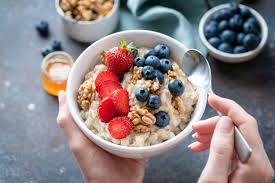We often see people stressing the benefits of expensive supplements while they forget to mention the importance of natural foods in their diet. Banana is one such fruit that is commonly available and inexpensive, but when it comes to nutrient profile, it can leave behind those fancy and expensive supplement brands. This fruit isn’t just a delicious and easily available option but also has a tremendous positive impact on your overall well-being.
In this article, we’ll see how bananas can help you improve your overall health by supporting your immune, health, digestive health, etc. So, let’s begin.
Benefits of Banana
Here are some of the benefits of bananas that will motivate you to include this healthy fruit in your regular diet.
Banana Provides a Lot of Nutrients
Bananas provide many nutrients, making them the perfect fruit for anyone looking for a nutrient boost naturally. In one medium banana, you’ll get:
- Calories: 112
- Fat: 0 g
- Protein: 1 g
- Carbs: 29 g
- Fiber: 3 g
- Total sugars: 12.23 g
- Total dietary fiber: 2.6 g
- Calcium: 5 mg
- Iron: 0.6 mg
- Magnesium: 27 mg
- Phosphorus: 22 mg
- Potassium: 358 mg
- Sodium: 1 mg
- Zinc: 0.15 mg
- Copper: 0.078 mg
Improves Heart Health
Bananas are one of the best potassium-rich foods which is an essential mineral for heart health. Your heart needs potassium to regulate heartbeat, nerve signals and muscle function. When you add bananas to your diet, they help maintain healthy blood pressure and lower the risk of stroke. The high percentage of fiber also supports heart health by managing cholesterol in healthy amounts.
Regulates Blood Sugar Levels
There are two types of fibers in banana – soluble fiber and resistant starch. Your body can’t digest these fibers to extract sugar from them. As a result, the blood levels remain regulated in the safe ranges. It also keeps you full for longer and reduces appetite, which helps you avoid over-eating and consuming more sugar-rich foods.
So, bananas are a safe option for people with diabetes, too, even if they have high carb content. But, you must ensure that you consume them moderately because eating too many bananas in one sitting may cause high blood sugar levels. It’s best to consult a doctor before including anything in your diet, especially when you’re suffering from a chronic health condition and you might have to limit certain foods to a specific portion of your diet.
Supports Digestive Health
Dietary fiber provides many health benefits, one of which is better digestion. The resistant starch in unripe bananas is a prebiotic. Prebiotics remain undigested in the stomach and enter the large intestine, where they are used as food for the beneficial gut bacteria.
Another fiber found in bananas is pectin, which helps to prevent constipation. According to some test-tube studies, pectin can also protect you against colon cancer. However, further research is required to confirm this.
Strengthens Your Immune System
Like all fruits, bananas also contain many dietary antioxidants, including amines and flavonoids. These antioxidants are crucial in strengthening your immune system and protecting against heart disease and muscular degeneration.
Antioxidants also help your body in preventing the oxidative damage to the cells that occurs due to the presence of free radicals. If your body doesn’t have the required amount of antioxidants, the amount of free radicals will increase over time to the point that it can harm your body in many ways.
Helps in Weight Loss
Although many people will think that bananas aren’t suitable when you’re trying to lose weight, many factors that will make you think otherwise. Bananas provide only very few calories; a medium-sized banana has only 100 calories, but they are very filling and nutrient-rich.
Dietary fiber and resistant starch in bananas keep you full for longer and thus help you avoid over-eating.
Improves Kidney Health
Your body needs potassium to regulate blood pressure and maintain healthy kidney function. Bananas contain a lot of potassium to keep your kidneys healthy. Potassium is helpful for chronic kidney disease patients and slows the progression of kidney disease.
But, if you’re someone suffering from late-stage kidney disease or is undergoing dialysis, you should limit your potassium intake and thus bananas too. If you’re suffering from kidney disease, talk to your doctor before increasing your potassium intake.
Tips for Including Bananas in Your Diet
There are many ways to include bananas in your diet. Here are a few:
- Peel and eat a banana for a quick and healthy pick-me-up.
- Slice some banana over your cereal or oatmeal for added sweetness and potassium.
- Blend bananas with yogurt, milk, and your favorite fruits for a delicious and nutritious smoothie.
- Mash ripe bananas and use them instead of butter or oil in muffins, cookies, and cakes.
- Add sliced bananas to pancakes, waffles, or yogurt parfaits for an extra layer of flavor and texture.
Join Cure and Craft:
Calling all healthcare professionals, medical students, and writers! Share your insights, experiences, and knowledge on our platform. Let’s craft informative articles together, shaping the future of healthcare. Connect, inspire, and enlighten our audience.





